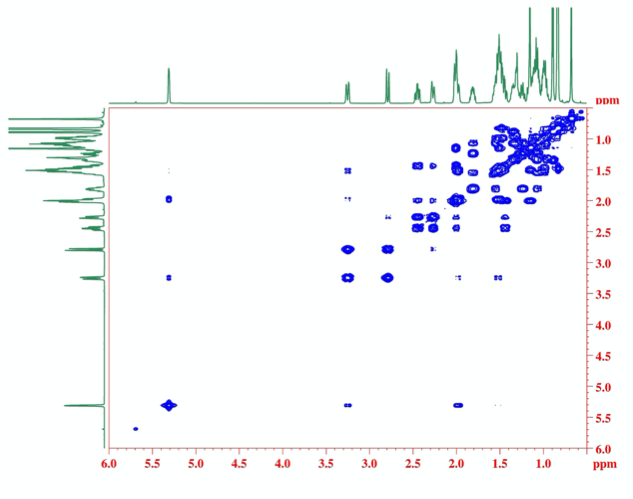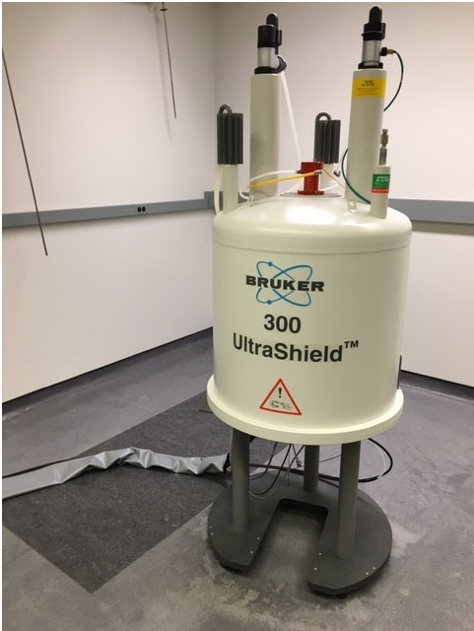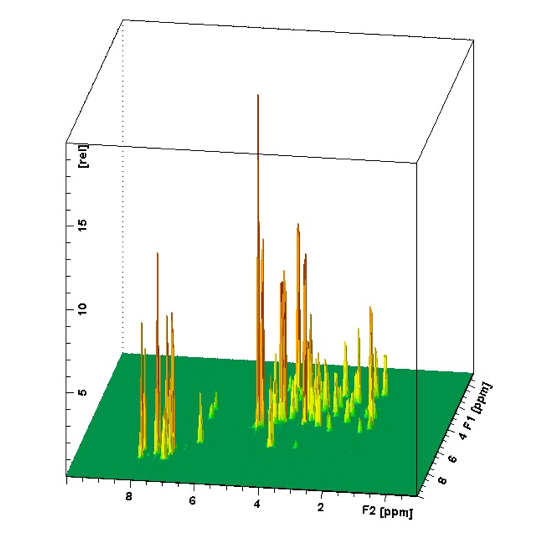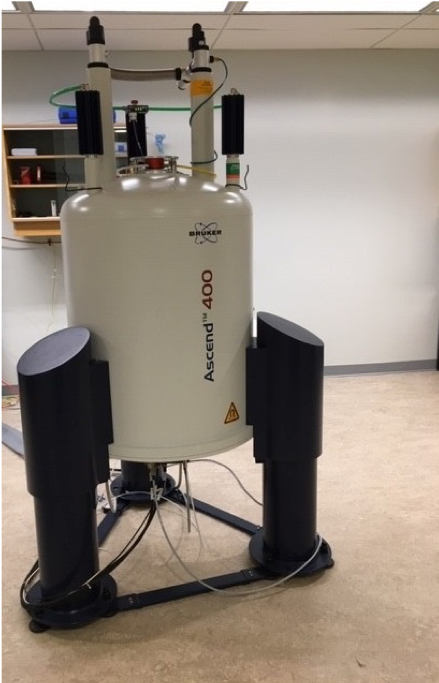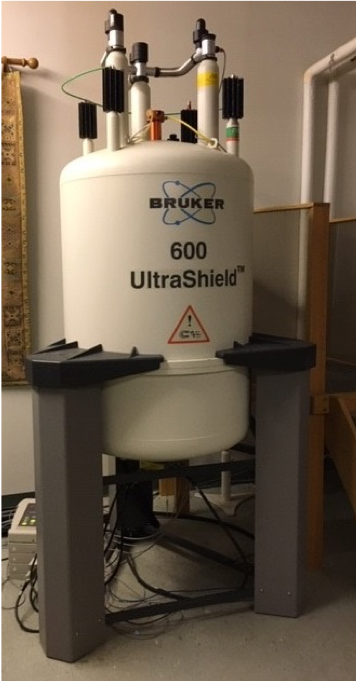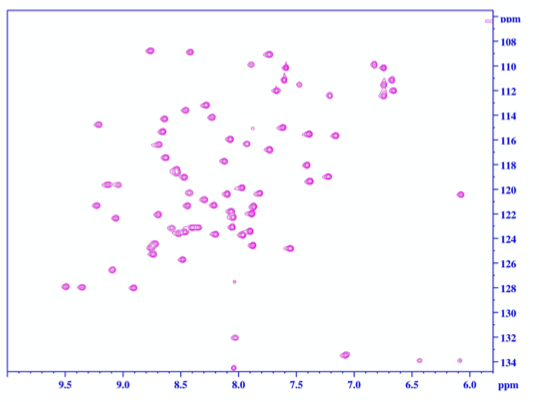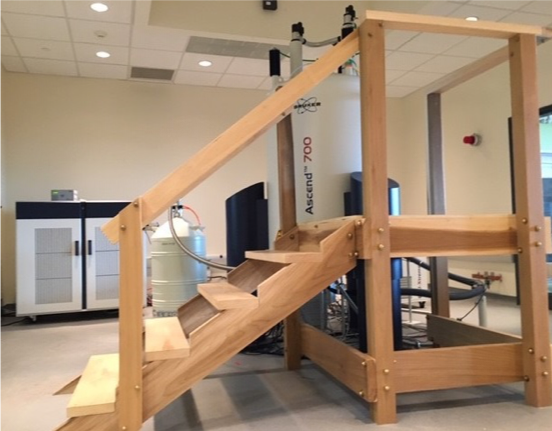The NMR Facility in the Department of Chemistry provides high resolution NMR support for research and teaching. The 300, 400, 600 and 700 MHz multinuclear spectrometers are part of the York University YSciCore Facility assisting chemical synthesis and structural biochemistry. The NMR Facility also supports external industrial laboratories and collaborators. Please let us know how we can assist you with your project.
The NEO 300 is a state-of-the-art multinuclear spectrometer focusing on training of students. This instrument is a key component of the undergraduate curriculum and is an integral part of advanced organic and inorganic chemical laboratory training. In addition, this variable temperature spectrometer is widely used for chemical exchange and reaction kinetics measurements for research labs. The automated tune and match probe capabilities facilitates queued multinuclear data collection for rapid and efficient sample analysis.
The NEO 400 is a state-of-the-art spectrometer dedicated to leading-edge research directed towards structure elucidation of organic, inorganic and organometallic compounds. This high-throughput instrument allows rapid confirmation of chemical synthesis intermediates as well as comprehensive two-dimensional data support of bond connectivity and chemical configuration. The multinuclear capabilities enable rapid data collection of samples with nuclei including 31P, 29Si, 19F, 13C, 11B, 7Li, 2H and 1H.
The DRX 600 is dedicated to longer term structural analysis and kinetic measurements. This 3-channel multinuclear system combines excellent signal dispersion reducing resonance overlap with increased signal sensitivity to enable data accumulation of dilute compounds. In addition, the variable temperature feature supports small biological molecule analysis and proton exchange measurements. The spectrometer is also equipped with several probes featuring: superior 13C sensitivity; 1H/13C/15N TXI, 1H/13C/31P TXI; 1H-13C HRMAS and 1H LC-NMR capabilities.
The AVIII 700 is equipped with a liquid nitrogen-cooled probe for enhanced sensitivity. The system is uniquely designed for the study of biochemical and chemical molecular structure and function and equipped to be a 4-channel system with deuterium decoupling capabilities for the study of large proteins. The exceptional sensitivity and resonance dispersion is also well-suited to metabolomics studies and impurity detection in vaccine development. The TOPSPIN operating software employs non-uniform-sampling (NUS) methods for rapid data collection of 3D experiments.


